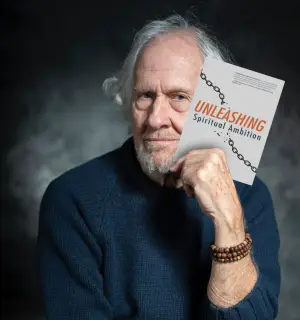Unpacking The Unaccountability Machine: Why Big Systems Make Terrific Decisions
I recently dove into "The Unaccountability Machine: Why Big Systems Make Terrible Decisions" by [Author’s Name], and let’s just say my mind is still swirling. As someone perpetually curious about how systems work—or, more aptly, how they often don’t—this book felt like a serendipitous discovery. The title alone had me intrigued, hinting at a deeper exploration beyond my usual reading fare. What I found inside was a blend of compelling insights that both fascinated and unnerved me.
Key Themes and Personal Reactions
At its core, the book tackles the intricate interplay between complex systems and human accountability, shedding light on how institutions evolve beyond individual control. The notion that systems act as their own natural forces—separate from individual motives—was a powerful concept that resonated deeply. It encapsulates the frustration many of us feel when confronting bureaucratic inefficiencies. The author expertly navigates through concepts like feedback mechanisms and cybernetics, proposing that our systems are created not for individual benefit but as evolving entities that often reject personal responsibility.
I’m particularly struck by the idea that as systems expand, they inevitably drift towards what the author describes as "accountability sinks." This concept—that policies outgrow their creators and become detached from human values—made me reflect on not just corporate systems, but also societal structures that often feel unresponsive to actual human experiences. It left me wondering how many policies or decisions in our daily lives echo this disconnection.
Writing Style and Notable Highlights
The writing style is crisp and engaging, almost like having a spirited discussion over coffee. While some sections can come across as unrigorous and a bit overwhelming with jargon, the clarity in presenting vast ideas allows for moments of genuine enlightenment.
One passage that stood out to me discussed how accountability can become an “accountability sink” for specific agents, allowing layers of hierarchy to dodge responsibility. This resonated because it’s a familiar narrative in many organizations: the higher you go, the less personal stake in decisions you seemingly have. I found myself nodding and muttering, “Exactly!” more times than I could count.
Conclusion: Who Should Read This
I would recommend "The Unaccountability Machine" to anyone fascinated by sociology, economics, or political science—basically, anyone who has ever felt frustrated by a convoluted system. It’s a thought-provoking read that invites you to rethink accountability, governance, and the systems that govern our lives. Although I found some theories needing further exploration, the book left me feeling enlightened about the complexities we navigate every day.
In a world increasingly shaped by AI and complex technologies, this book serves as both a cautionary tale and a call to action for us to consider how we can design better systems that prioritize genuine connection and responsibility. If you’re ready to question the systems around you and explore the undercurrents that shape decision-making, then add this book to your reading list. You might just find your perspective shifted, as I did.
Discover more about The Unaccountability Machine: Why Big Systems Make Terr… on GoodReads >>






